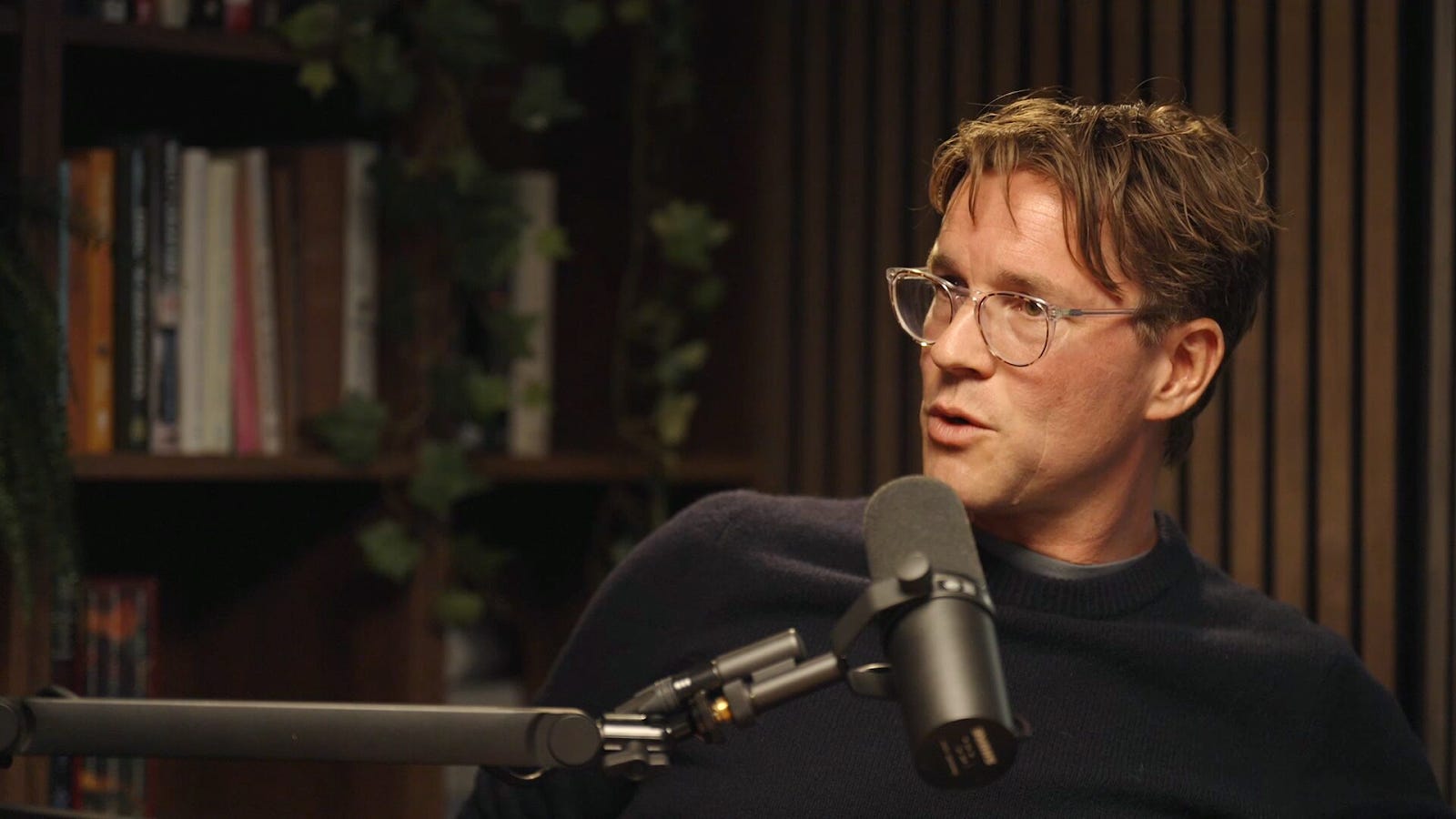“Apple's Dependence on China Is Hard to Overstate”: An Interview With Patrick McGee
Description
Manufacturing has become the defining battleground of 21st-century economic competition. China's transformation from assembly hub to advanced manufacturing superpower didn't happen by accident; it emerged from strategic choices about industrial policy, workforce development, and the patient accumulation of process knowledge that Western economies largely abandoned in their rush toward financialisation.
Patrick McGee's masterful Apple in China provides essential insight into how this transformation unfolded. Through meticulous reporting from factory floors and boardrooms, Patrick reveals how Apple mastered what seemed impossible: outsourcing production whilst maintaining absolute control over its value chain. The book shows how Apple kept design, knowledge, and brand—the parts that appreciate—whilst leaving factories and workers to others.
More importantly, Patrick's work illuminates why that model is now unraveling. Not because Apple failed, but because the conditions that made it possible—China's unique manufacturing ecosystem, unfettered global trade, and Apple's relentless design innovation—are disappearing simultaneously. As software becomes commoditised and hardware determines competitive advantage, understanding how China built its manufacturing dominance becomes crucial for grasping what comes next.
This conversation, recorded in July 2025, explores the mechanics behind China's rise, the strategic decisions that enabled it, and whether the West's current push to ‘reshore’ manufacturing can succeed—or if it represents a fundamental misunderstanding of how modern production actually works. Patrick brings a reporter's eye for detail and a deep understanding of both American business culture and Chinese industrial policy to questions that will shape the global economy for decades.
“It was miserable failure for at least 24 months”
Hi, Patrick. It's great to have you here. Thank you for agreeing to do this.
Thanks, Nicolas. My pleasure.
This is an interview about your book, Apple in China, which is everywhere. Everyone's interested in it—those who are interested in China, those who are interested in Apple, those who are interested in tech in general or manufacturing. Obviously, there's also the perspective of reindustrialising the West, restoring our manufacturing power that apparently has been lost to China over the past 20 to 30 years.
All in all, it's a book that is of interest for many people. It means there have already been a lot of articles and interviews. We're doing one more, but I’ll try to ask questions that haven't been discussed that much yet. Thank you again for agreeing to do this.
First of all, can you remind us of the history of the book? How did you decide or how did someone decide that you should write this book?
I was the Financial Times reporter for Apple for four years, from 2019 to 2023. I had previously covered the German automotive sector. For several years, I was covering the dieselgate scandal at Volkswagen, but I was in factories in Germany all the time. People who know German corporate history will know that the Germans did phenomenally well throughout the 2010s by making China their massive market. Volkswagen, I think 40% of profits were coming from China. Germany as a country is actually undergoing something pretty similar to Apple as a company. In other words, deep success, but deep vulnerability and exposure to China. Before that, I was in Hong Kong for three years. In a sense, the idea for the book—I didn't think about this at the time, but in retrospect, I'm connecting the dots the way that Steve Jobs said he'd like to do for his own life—is the combination of those beats. China, supply chains and tech, if not Apple in particular. Then there was the fact that I found Apple to be quite a difficult company to cover.
I don't look back in my four years as an Apple reporter as one success after another. It was a miserable failure for at least 24 months before I began to understand how to cover it in a distinct way, largely because I don't care for a lot of Apple coverage, and I don't like covering it the way that people like to cover it. It typically gets covered for a tech audience. I'm much more interested in not Apple per se, but Apple's impact. It's such a large company. It has such a role in our culture. Obviously, we are tethered to our smartphones in a way that we've probably never been tethered to any technology before. There were all sorts of things that were interesting about Apple, but the geopolitical lens is the one that has really been undocumented. Everybody knows that Apple is manufactured in China, and most people could probably tell you two things about Foxconn: that it assembles Apple products and that there were some suicides 15 years ago. That was honestly the state of knowledge before I began to really delve into that. And then it became obvious that there was a book there because much had really just been uncovered.
And basically, questions that I wanted to answer for my own knowledge of Apple were not available. Up until even just waiting for the book to be published, I would randomly ask ChatGPT certain questions where I knew I had the answers in the book just to see what it would come up with. And it just routinely hallucinated and got things wrong because much of it hadn't been reported before.
Yeah, that's interesting. I used to work in policy for the French government on tech-related issues. And Apple was notoriously difficult to deal with because they didn't have an office, they didn't have a team, you didn't know who to talk to. And when you finally found someone either from Apple or representing them, they would say, “Officially, we don't exist. We're not talking to you. We'll pass some messages, but we're not here,” basically.
Is it the same for journalists like you? Or did you have someone to talk to at Apple?
No. You have an Apple PR team that—I want to be clear about this—is not incompetent. They know what they're doing, but they are unhelpful by design. They are not there to help you understand the company. They are there to figure out what you're reporting before you report it so that they can brief other individuals and do damage control. They would often try to kill a story in the 48 hours that I would give them to comment. But they're never there to be like, “Oh, that's an interesting topic. Let's help you understand the manufacturing process a little bit. We'll get some manufacturing design engineers on the phone with you and handhold you as to how we work with Foxconn.” That would never happen. Certainly, they would never get excited that you're interested and say, “We should actually have you fly to some of these factories in China. Let's go through the process with you. Let's see how the sausage gets made.” It's nothing like that whatsoever.
I have to say, among the difficulties I had in getting inside Apple as a reporter, well before I was writing the book, was that I had been misled into how to do it by all the reporting I had done in Germany. Because in Germany, by law, companies have to be split at the board level between shareholders, which is basically everyone on the American side of things, and the labour union side. What that meant was that whenever you got in touch with one of those sides, they were pretty happy to talk to the media because there's tension within the company, and the shareholders' side wants that side to win, and the labour side wants their side to win. They always have this incentive to give you the inside narrative.
Apple is very different, and American corporations at large are very different. They want to tell you a singular narrative. They don't want to reveal the tension, even though it probably exists not differently. The ease with which I had access to German corporations led me into a complacency that it was easy to get the inside view of companies. With Apple, it was like talking to the CIA and trying to figure out stories. They're actively unhelpful, and you're trying to figure out your story.
“I had to cut 20,000 words, and It was good stuff”
I imagine it's the same in China. China is notoriously difficult to cover because nobody understands a thing. You need to master the language. And if you really want to go deep, the Communist Party won't talk to you either. You picked a really difficult subject, in a way.
Yeah. A fair criticism I haven't seen a lot of ink spilled over, but would just be fair, is the idea that I didn't give enough credence to the Chinese official side of things. It's a hilarious criticism because even the to
























